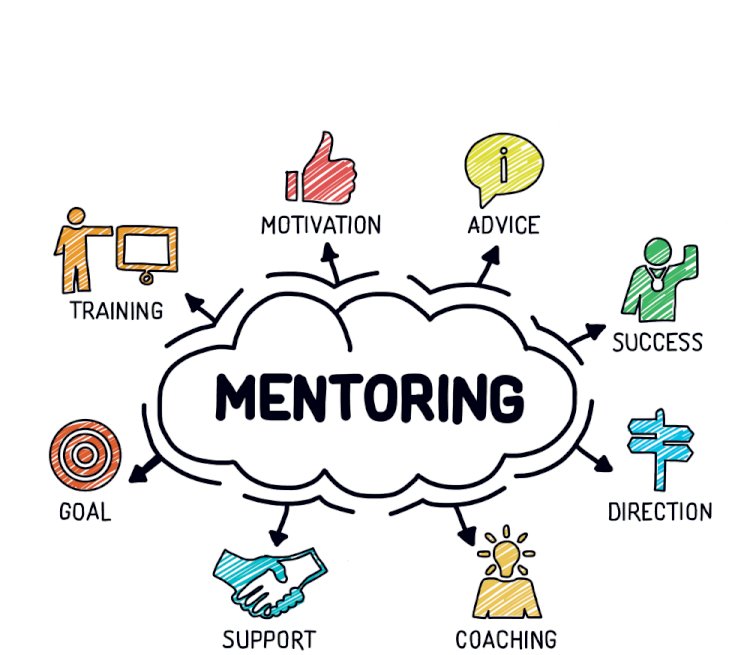How mentor plays a important role towards a first time entrepreneurs
Everyone requires the assistance of a mentor. However, not everyone possesses one. It's never too early to start looking for an experienced mentor because it will not only assist you in establishing your firm but will also provide you with the required assistance to make smart and important decisions that will impact the future of your company.

A mentor is someone who accepts the task of helping a founder through parts of business or life in which they have more experience.
What do Jeff Bezos, Larry Page, and Steve Jobs have in common, in your opinion? They're all highly successful businesspeople. They do, however, have one thing in common: they all had mentors who helped them along the way. Yes! Even the well-known founders of these outstanding businesses needed a little help, advice, and support now and then. A good mentor is a tremendous asset in business.
Would-be successful business owners require the assistance of individuals who have a thorough understanding of how businesses operate. Many small business owners attempt to obtain this information through business books and classes. While these can be useful on their own, they are more effective when we combined it with mentoring.
A mentor assists entrepreneurs with specific questions by sharing their knowledge and contacts garnered from years of experience. As a result, a mentor must not only perform executive functions but also comprehend the project's process and evolution.
Why is this person's contribution so critical in a startup?
Turning to a mentor can have a number of evident advantages for entrepreneurs, the most important of which is the successful transfer of knowledge, as well as assisting your firm in all aspects.
No matter how extremely smart you believe you are, or how innovative, disruptive, or just off-the-wall your new notion might be, every start-up team needs at least one good mentor.
Mentors, in general, serve as a form of fuel for entrepreneurs, similar to the instruction manuals that teach you where to put each component in order to make a good and successful startup company.
Advantages that a mentee receives from the mentor: The following are some of the teachings, tasks, and knowledge that a mentor conveys.
- Asking Questions and Getting Advice: The most significant advantage of having a business mentor is having someone to whom you can ask questions and receive guidance.
- A Different Point of View: Business mentors can assist you in considering problems and circumstances from angles you would not have considered on your own.
- Improving Critical Skills: Mentors are not the same as counselors and consultants, who are primarily interested in the success of the business. Business mentors, on the other hand, assist you in honing your business talents.
- Having a Confidential Conversation with Someone You Can Trust: As a business owner, you'll need to express yourself with someone you can trust on a regular basis. Business owners can't express themselves to their partners, staff, or customers without disrupting the company's structure. However, once you've vented to a mentor, you may usually begin working with the mentor to resolve the source of your annoyance.
- Increase your Network: Firm mentors can connect you with people who can assist you in growing your business. The more you network, the more people you'll meet.
- Strategies and Methods: Business mentors may give you lots of a collection of ideas and strategies that you can use throughout your career as a business owner.
- Belief in your Ability to Make Better Decisions: When faced with stressful business problems, knowing you have a trustworthy mentor who can give you confidence. Similarly, when you make good decisions, good mentors will applaud you. Praise might help you picture yourself as an experienced and intelligent businessperson.
- A Gentle Nudge: Starting a business is difficult, and many entrepreneurs confront difficulties early on. Many business owners, on the other hand, face similar challenges. Hearing about your mentor's experiences firsthand can help you recognize that the challenges you're facing today are preparing you to be a better business person in the future.
How do you go about finding the perfect mentor?
You should carefully choose a mentor. Make sure you know exactly what you want from your mentor.
Are you looking for networking opportunities, introductions to amazing contacts, or market research or product development advice?
Any mentoring experience will bring diverse sets of talents and viewpoints from different people, so you'll need to know what your "ask" is.
Make a list of the talents and qualities you know you need in a mentor. And keep in mind that your needs as a mentee will likely change over time - there's no rule that says you have to have the same mentor for the rest of your career. Begin networking as soon as possible to locate potential mentors.
What are the best places to look for mentors?
To find mentors, look into local business and startup networking groups, as well as the leadership of local non-profit organizations. Offer to work an event put on by one of these organizations, which will put you in contact with industry experts. Find a few folks who are willing to meet with you for a few minutes and see if you connect with any of them as mentors.
If you want to make contacts with entrepreneurs of different levels of experience, business incubators and accelerators are also wonderful places to go. Try attending Chamber of Commerce events, local business roundtables, social media networks, and industry conferences as well.
A mentor could assist in the following areas, in addition to strategy and decision-making:
- Assisting in the development of a business case and business plan: the most important inputs here would be to assist the founder (typically a first-time entrepreneur) in comprehending the complexity of business, the numerous cost structures, and the time it takes for companies to stabilize (usually entrepreneurs underestimate the time taken to establish the venture in the marketplace).
- Providing cordial introductions to potential customers, workers, partners, and investors.
- Providing assistance through difficult times becoming an entrepreneur can be a lonely experience. And the difficulties that a person faces can frequently bring them down. In these situations, a mentor can play a critical role in maintaining motivation by telling the entrepreneur that problems are a part of every journey, ensuring the entrepreneur that his or her support is available, and so on. assisting with difficult decisions, such as shutting down.

 Lalita Singh
Lalita Singh 
























